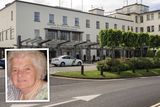‘Some of the more extreme expressions of feminism have been harmful both to women and to men,’ says Bishop Doran
Bishop Kevin Doran.
The Catholic Bishop of Elphin, Dr Kevin Doran, has questioned if “toxic masculinity” is linked to “aggressive feminism” as he called for “gentleness” between the sexes.
In his homily on Sunday, the Sligo-based prelate suggested that “some of the more extreme expressions of feminism have been harmful both to women and to men.”
Toxic masculinity, Dr Doran said, meant that characteristics which are traditionally associated with masculinity, “good things like strength and courage and honour, can sometimes become distorted and exaggerated in such a way that young men feel that it is ok to be violent and rude and to treat women disrespectfully”.
“Alcohol and pornography, of course, add fuel to the fire,” he commented.
Asking what caused toxic masculinity, he stated, “I may be wrong, but I wonder if ‘toxic masculinity’ might be, in some way related to aggressive feminism, like two sides of the same coin.”
The 69-year-old is known for his conservative views and to be strongly opposed to contraception and abortion. Following the repeal of the Eighth Amendment in 2018 he called on catholics who had voted ‘yes’ in the referendum to go to confession.
In his homily on Sunday, Dr Doran said that aggressive feminism regarded men as the ‘opposition’ and that “many women, paradoxically, felt that the only way they could achieve equality was to be more like men. It became politically incorrect to talk about the unique contribution of women as mothers,” he said.
Calling for “tenderness” in all human relationships, the Bishop of Elphin admitted that it was only right that the equality of women should be recognised and that women should be more present and more visible in the public space. He said this was an issue that had come up in the synodal conversations that have been taking place in Church communities all over the world in recent months.
“If you go back even one generation, but certainly two, the role of women in western society was very limited. Women’s intelligence and their creative gifts were not acknowledged. Their involvement in decision-making was restricted to the family home. The Church has to take its share of responsibility for that,” he acknowledged.
While, “Much has changed and, undoubtedly, more needs to change,” he said the fact that we are all equal does not mean that men and women are all the same.
“In a changing environment, perhaps it is not surprising that men might question what it means to be male, and to wonder how they should freely express and even celebrate their masculinity.”
The goal is to change structures, not to undermine or destroy people, the bishop stressed and warned that it can never be about replacing one form of injustice with another.
“It doesn’t really solve anything if we achieve nothing more than to pull one crowd down and put another crowd up on the pedestal in their place,” he said.
Calling for a re-discovery of gentleness and humility over aggression, he said these are the values people need to transmit to their daughters and sons.
Join the Irish Independent WhatsApp channel
Stay up to date with all the latest news














